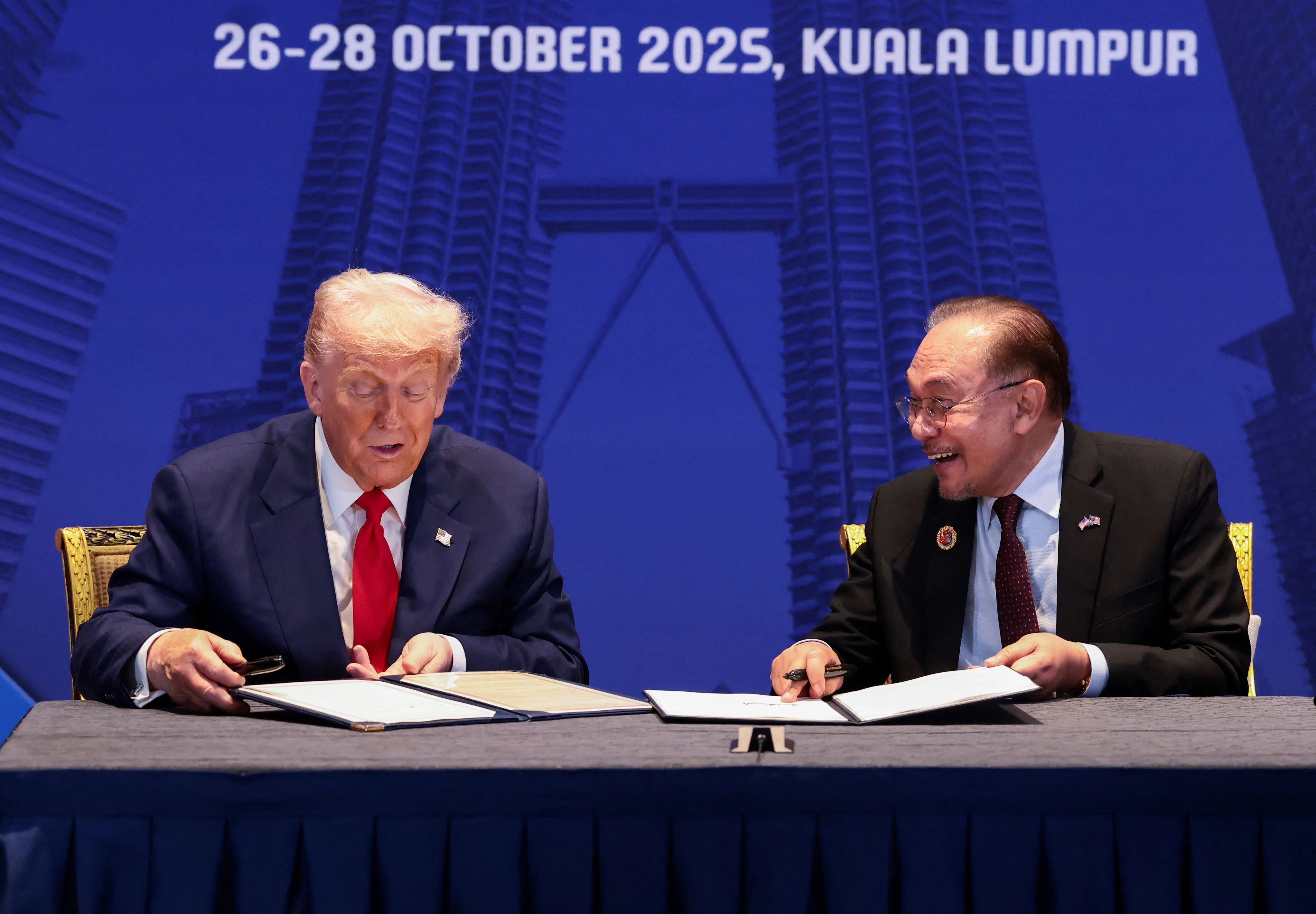Copyright scmp

Malaysia did not give up its sovereignty in a trade deal with the United States, Prime Minister Anwar Ibrahim has said, amid mounting fears that Washington through the recently brokered agreement can dictate how Kuala Lumpur should behave. The two countries signed a trade deal on Sunday during US President Donald Trump’s one-day whirlwind visit to Kuala Lumpur, capping months of negotiations that followed the mercurial leader’s “Liberation Day” announcement in April when he declared a tariff war on the world. But critics and the opposition warned that a specific clause under the agreement would give the US power to compel Malaysia to follow its lead on sanctions against third countries, raising fears that Malaysia could be forced to take sides in Washington’s trade and tech war with Beijing. Anwar hit back at his critics, saying that there was nothing in the agreement that prevented Malaysia from cooperating with any other party. Instead, Malaysia could end the agreement as and when it saw fit to do so, he said. “In this trade deal, we have exit clauses. Why did we sign it? Because we need American investments. I will not apologise for that,” Anwar told parliament during Prime Minister’s Question Time on Thursday. “Don’t just criticise, claim that we are America’s puppet. Claims that we sold [our sovereignty], that this is new colonialism … there is none of that.” Anwar’s government hailed the deal as a win for Malaysia, paving the way for more predictable trade and economic cooperation with the US – albeit with fixed tariffs of 19 per cent on most Malaysian exports and a pledge to spend US$240 billion to buy US products such as beef and aeroplanes and invest in its giant economy. But the opposition accused the government of wilfully giving up the country’s sovereignty, zooming in on Article 5.1 of the deal which says Malaysia “shall adopt or maintain” measures that equate to any prohibition or restriction imposed by the US on third countries that are deemed a threat to its economic or national security. The US has imposed broad prohibitions on exports of high-end chips and equipment used to make top-line semiconductors to China. Beijing in turn has restricted US access to processed rare earths, which are vital materials to make everything from smartphones to medical equipment. Malaysia’s Trade Minister Tengku Zafrul Aziz told parliament on Wednesday that the clause did not compel the country to follow Washington’s lead, as the country remained guided by its own laws and that any joint action would be subject to “shared economic concerns” by both Malaysia and the US. Malaysia was well aware that any trade prohibition imposed under the thumb of the US on a third nation could expose it to sanctions by the World Trade Organization (WTO), said Hafidzi Razali of political risk and advisory firm Strategic Counsel. “Any unilateral compulsion or sanction by the US could go against established trade principles and discriminate against other nations,” Hafidzi told This Week in Asia. “Malaysia is aware to avoid or risk a WTO dispute.” Experts, however, said Malaysia would have to be careful about allowing the US too much leverage, especially with the Trump administration continuing to weaponise tariffs to squeeze preferential trade arrangements with its partners. According to Kamles Kumar, Malaysia lead at strategic advisory firm Asia Group Advisors, the deal already forces Malaysia to tilt “towards the US economic orbit”, making it all the more important for the government to uphold its geopolitical non-alignment and maintain strong ties with its largest trading partner China. “It is all about striking a balance for Malaysia, utilising tariff agreements to secure market access and industrial upgrades from the US while anchoring regional stability through Asean and continued cooperation with China,” Kamles said, referring to the Association of Southeast Asian Nations bloc.



